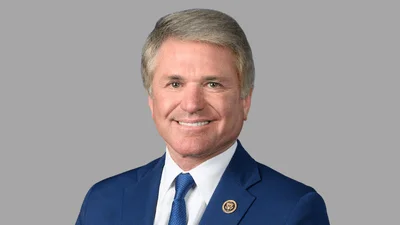WASHINGTON - Today the House of Representatives passed bipartisan legislation to boost the American economy, create jobs, and help provide additional relief to families who are struggling during the economic downturn. The legislation, H.R. 7110, the Job Creation and Unemployment Relief Act, includes economic recovery incentives including a nationwide extension of unemployment benefits championed by Ways and Means Committee Chairman Charles B. Rangel (D-NY) and Income Security and Family Support Subcommittee Chairman Jim McDermott (D-WA).
“While Congress negotiates legislation to stabilize Wall Street, we must remember our commitment to families on Main Street who are struggling to find jobs or put food on their tables," said Chairman Rangel. “This bill would provide a nationwide extension of unemployment benefits to the hundreds of thousands of workers who will exhaust their benefits before the end of this year. Our economy has shed jobs every single month this year, more than 600,000 in total, and this bill helps ease the pain of those who have lost their job while also helping to create new opportunity for work and job training."
The economic recovery bill would:
· Extend unemployment benefits for the growing number of Americans looking for work (please click here for more information on the provision);
· Grow our economy and create jobs through investment in our nation’s infrastructure;
· Help ensure families don’t go hungry with Food Stamp assistance; and
· Ensure Americans do not lose health coverage as a result of state budget crises.
ADRESSING NEEDS IN TOUGH TIMES
Extension of Unemployment Benefits: Provides an additional 7 weeks of extended benefits for workers who have exhausted regular unemployment compensation (20 total weeks). Workers in high unemployment states are eligible for an additional 13 weeks of benefits (33 total weeks). Extending unemployment benefits is one of the quickest, most cost-effective forms of economic stimulus because workers who have lost their paychecks spend benefits quickly.
Medicaid Assistance: Provides a temporary increase in the Federal Medical Assistance Percentage (FMAP) for Medicaid health costs, with increases from one to four percent, at a time of increasing enrollment. These funds will prevent cuts to health insurance and health care services for low-income children and families, as well as generate business activities, jobs, wages and State sales tax revenues that States would otherwise not see.
Food Assistance: $2.6 billion to address rising food costs for seniors, people with disabilities and very poor families with children. This year, an average of 27.8 million individuals, and 12.5 million households, received food stamps.
Job Training: $500 million to help Americans find and prepare for good jobs including $400 million is for dislocated worker and youth employment activities and $100 million to provide customized help to folks receiving unemployment benefits. Unemployment claims have increased by over 38% this year and 36% exhaust their benefits before finding work.
INFRASTRUCTURE
In order to have an immediate effect on the economy, investments are made in infrastructure projects that can start fast, meet existing needs, and create jobs. These projects provide short term benefit by putting people to work and buying goods, but leave behind long term infrastructure improvements that will benefit Americans for years to come.
Highway Infrastructure: $12.8 billion, for our nation’s aging highways and bridges, to improve safety and reduce traffic congestion.
Corps of Engineers: $5 billion to invest in the nation’s water resource infrastructure with improved flood protection, navigation and hydropower and to increase the efficiency of existing water infrastructure.
Fixing Crumbling Schools: $3 billion to repair crumbling schools, provide students with first class technology, and to improve energy efficiency. One-third of public school buildings need extensive repair or total replacement and two-thirds have environmental problems unhealthy for children.
Clean Water: $7.5 billion for drinking water and sewer projects including $6.5 billion for the Clean Water State Revolving Fund and $1 billion for the Drinking Water State Revolving Fund to repair, rehabilitate and expand water systems, many of which are over 50 years old and $300 million for Bureau of Reclamation water projects, including $98 million to provide clean, reliable drinking water to rural areas and $126 million to ensure adequate water supply to western localities impacted by drought.
Transit: $3.6 billion to purchase buses and equipment needed to expand public transportation and to make improvements to facilities and $1 billion to meet growing demand for public transportation due to higher gas prices while reducing American gasoline consumption. Rising fuel costs have some transit agencies facing service reductions or fare increases.
Airport Improvement Grants: $600 million, for projects to improve safety and reduce delays at our nation’s airports.
AMTRAK: $500 million, to make necessary upgrades to tracks and stations so that Amtrak can meet growing demand due to high gas prices. This year ridership has increased by 8 percent on the Northeast Corridor and 13 percent on other corridor routes.
Public Housing: $1 billion for repair and construction projects, including critical safety repairs. Every dollar of Capital Fund expenditures produces $2.12 in economic return.
ENERGY DEVELOPMENT
Advanced Battery Technology Loans: $1 billion to support $3.3 billion in loans to encourage the manufacture of advanced vehicle batteries and battery systems - a key component to fuel efficient cars - in the United States.
Energy Efficiency and Renewable Energy: $500 million to accelerate the development of technologies that will contribute to a reliable, domestic energy supply.
Electricity Delivery and Energy Reliability: $100 million to modernize the electric grid, make energy infrastructure more secure and reliable, and speed recovery from disruptions to the energy supply.








